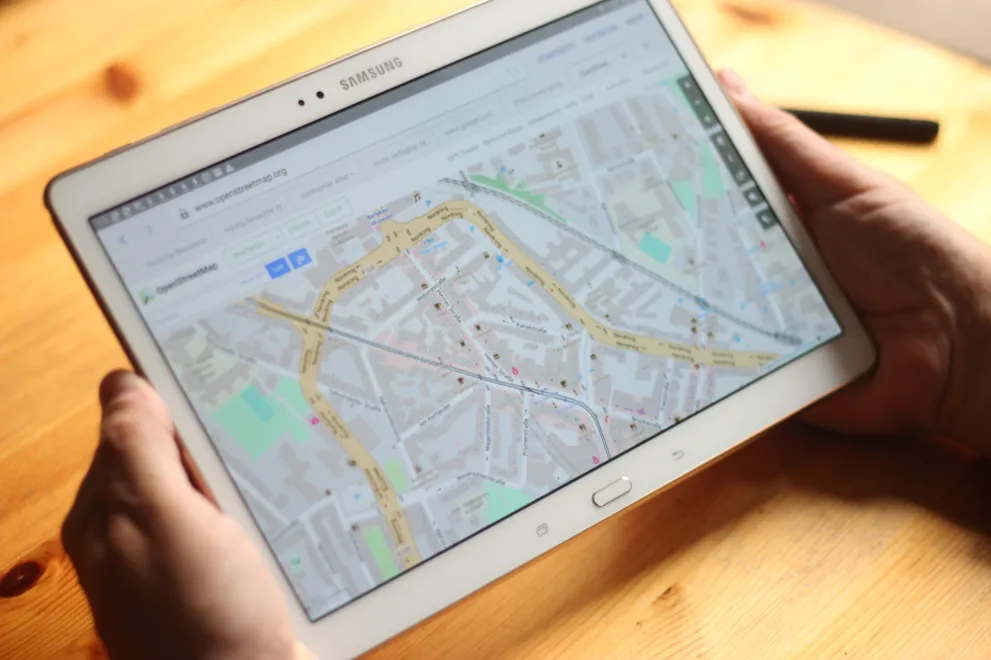
ERC Advanced Grant 2023
Improving the Efficiency of Maps
We are growing more and more dependent on digital navigation. Frank Dickmann is researching ways of improving our individual spatial orientation skills in spite of this trend in his project InnerMap.
GPS navigation systems in cars and mobile phones are playing an increasingly important role in spatial orientation and navigation. The drawback is that the cognitive map that forms in the mind of users who rely on digital navigation devices is much more fragmented, incomplete and inaccurate than the spatial representations that are formed when reading a traditional printed map. As our reliance on digital devices increases, we urgently need to develop more efficient ways of displaying maps in navigation systems that will enhance our spatial orientation skills rather than reduce them.
To remedy this deficit, Frank Dickmann aims to develop cartographic visualisations that build on internal brain processes in his project "A novel approach to improved navigation performance through memory triggering maps" - InnerMap for short. Neuroscience studies have identified brain cells such as place cells and grid cells whose activity patterns are associated with navigational processes. Experiments in animals and indirectly in humans have shown to what extent environmental stimuli such as walls or boundaries affect the activity of grid cells in the brain.
Activating neuronal firing
The fundamental impact of such structures on cell activation could be used to improve spatial orientation skills in humans. This is because the spatially tuned cells are active in humans not only while they are moving in a spatial environment, but also when the movement is merely imagined, such as when reading a map. It should therefore also be possible to stabilise the activity of grid cells in a person’s brain by map symbols that the person registers when reading a (digital) map. This can be done by adding distinctive lines or graphic patterns to the map that are likely to stimulate the firing of grid cells. Navigating with maps that result in such cell activation could thus result in a speedier generation of an internal map and ultimately improve memory performance.
Several empirical studies are planned to identify visualisation mechanisms that support cellular activities in the human brain. They will include functional magnetic resonance imaging (fMRI), electroencephalographic (EEG) monitoring, virtual reality as well as behavioral studies (eye tracking).
Professor Frank Dickmann
Professor Frank Dickmann has been Professor for Cartography at the Institute of Geography at Ruhr University Bochum since 2007.
